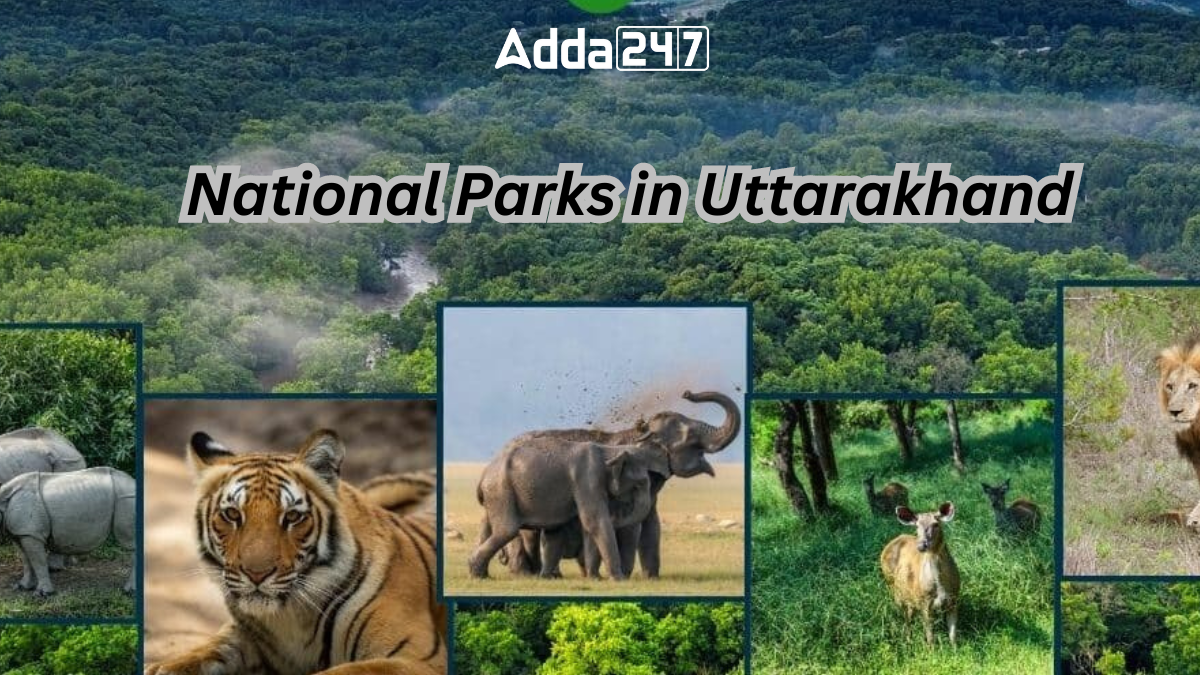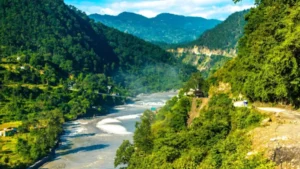Nestled in the lap of the Himalayas, Uttarakhand is a paradise for nature enthusiasts and wildlife lovers alike. Boasting a diverse range of ecosystems, from lush forests to towering peaks, this northern state of India is home to several breathtaking national parks. These protected areas not only preserve the region’s rich biodiversity but also offer visitors a chance to immerse themselves in the untamed beauty of the wilderness. Let’s embark on a journey to explore the magnificent national parks of Uttarakhand.
How many National Parks are there in Uttarakhand?
Uttarakhand is home to six spectacular national parks, each offering a unique wilderness experience. These include Jim Corbett National Park, Rajaji National Park, Valley of Flowers National Park, Nanda Devi National Park, Gangotri National Park, and Govind Pashu Vihar National Park. From the dense forests of Jim Corbett to the alpine meadows of Valley of Flowers, each park showcases the rich biodiversity and natural beauty of the region.
National Parks in Uttarakhand – Map
A map of Uttarakhand highlights six national parks: Jim Corbett, Rajaji, Valley of Flowers, Nanda Devi, Gangotri, and Govind Pashu Vihar. These protected areas offer diverse ecosystems, from dense forests to alpine meadows, inviting visitors to explore their natural wonders.
List of National Parks in Uttarakhand
Uttarakhand is home to six spectacular national parks, each offering a unique wilderness experience. Here is the list of national parks in Uttarakhand:
| National Parks in Uttarakhand | ||
| S. No. | Name | Location |
| 1. | Nanda Devi National Park | Peak of Nanda Devi |
| 2. | Jim Corbett National Park | Nainital district |
| 3. | Valley of Flowers National Park | Chamoli district |
| 4. | Rajaji National Park | Dehradun, Haridwar, Pauri, Garhwal |
| 5. | Gangotri National Park | Uttarkashi district |
| 6. | Govind Pashu Vihar National Park | Garhwal Himalayas |
Nanda Devi National Park
Location: Chamoli District
Establishment: 1982
Area: 62,460 hectares
Established in 1982, the Nanda Devi National Park gained UNESCO World Heritage status in 1988 and was later expanded and renamed as the Nanda Devi and Valley of Flowers National Parks in 2005. Situated around the majestic peak of Nanda Devi, the park has designated areas reserved solely for ecotourism to preserve its natural environment. Despite numerous unsuccessful attempts during British rule, it was successfully explored by H.W. Tilman and Eric Shipton in 1934, leading to its declaration as a game sanctuary. Accessible via a trek from Lata Village after reaching Rishi via Joshimath.
Jim Corbett National Park
Location: Nainital district
Establishment: 1936
Area: 1,318 square kilometers
Jim Corbett National Park, situated in Uttarakhand’s Nainital district, is renowned for its thriving tiger population, marking it as the first site to be included in the Project Tiger initiative. Characterized by hilly terrain, riverine landscapes, and vast grasslands, the park boasts diverse ecological features typical of the sub-Himalayan belt. Its dense forests harbor over 110 tree species and a plethora of mammals, reptiles, and avian species. Apart from being a haven for tigers, the park provides sanctuary to elephants, leopards, buffalos, and various migratory birds. The Ramganga river meandering through the reserve sustains a rich and abundant habitat for the park’s flora and fauna.
Valley of Flowers National Park
Location: Chamoli District
Area: 8,750 hectares
Valley of Flowers National Park, an extension of the Nanda Devi National Park, forms part of the expansive Nanda Devi Biosphere Reserve. Spanning 87.5 square kilometers, it serves as a transitional zone between the Zanskar and Great Himalayan mountain ranges. True to its name, the park is renowned for its stunning array of exotic flowers, including orchids, poppies, daisies, and marigolds, creating a picturesque landscape. Located in Chamoli district, it is accessible via trekking routes starting from Govind Ghat, offering visitors a mesmerizing journey through its floral paradise.
Rajaji National Park
Location: Dehradun, Haridwar, Pauri, Garhwal
Establishment: 1983
Area: 820.5 square kilometers
Raja Ji National Park, celebrated for its thriving tiger population, holds the esteemed status of being designated as a tiger reserve, thus becoming the second such reserve in Uttarakhand. Encompassing the Shivalik hills near the Himalayan foothills, it sprawls over 820 square kilometers, spanning across three districts – Dehradun, Haridwar, and Pauri Garhwal. Accessible by road, the park is a consolidation of three wildlife sanctuaries – Rajaji, Motichur, and Chilla, merged in 1983. Recognized as the 48th Tiger Reserve in India, it stands as a testament to the region’s commitment to wildlife conservation.
Gangotri National Park
Location: Uttarkashi district
Area: 2,390 square kilometers
Gangotri National Park, nestled in Uttarakhand’s Uttarkashi District, is home to a diverse array of wildlife including snow leopards, Asian Black Bears, brown bears, Himalayan Tahr, and over 150 species of birds. Named after the nearby Gangotri glacier, the park boasts Western Himalayan subalpine conifer forests in its lower elevations. The park is best visited during the Indian summer months, from April to October, when tourism peaks and the natural beauty of the park is at its finest.
Govind Pashu Vihar National Park
Location: Uttarkashi district
Establishment: 1955
Area: 958 square kilometers
Originally established as a wildlife sanctuary, Govind Pashu Vihar National Park transitioned into a national park in 1955. Situated in the higher reaches of the Garhwal Himalayas, the park plays a pivotal role in managing the Snow Leopard Project initiated by the Indian government. Furthermore, it is dedicated to conserving the majestic Bearded vulture, showcasing the region’s commitment to preserving the rich biodiversity of the Himalayas.




 Which River is known as the Black River?...
Which River is known as the Black River?...
 Which State is the Largest Producer of C...
Which State is the Largest Producer of C...
 Which State is the Largest Producer of J...
Which State is the Largest Producer of J...








